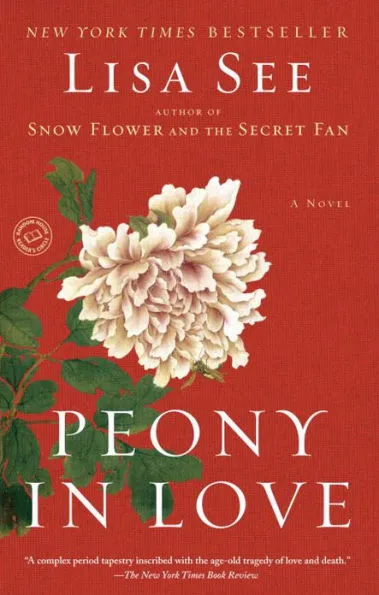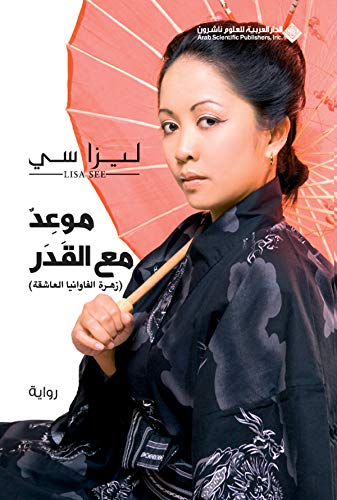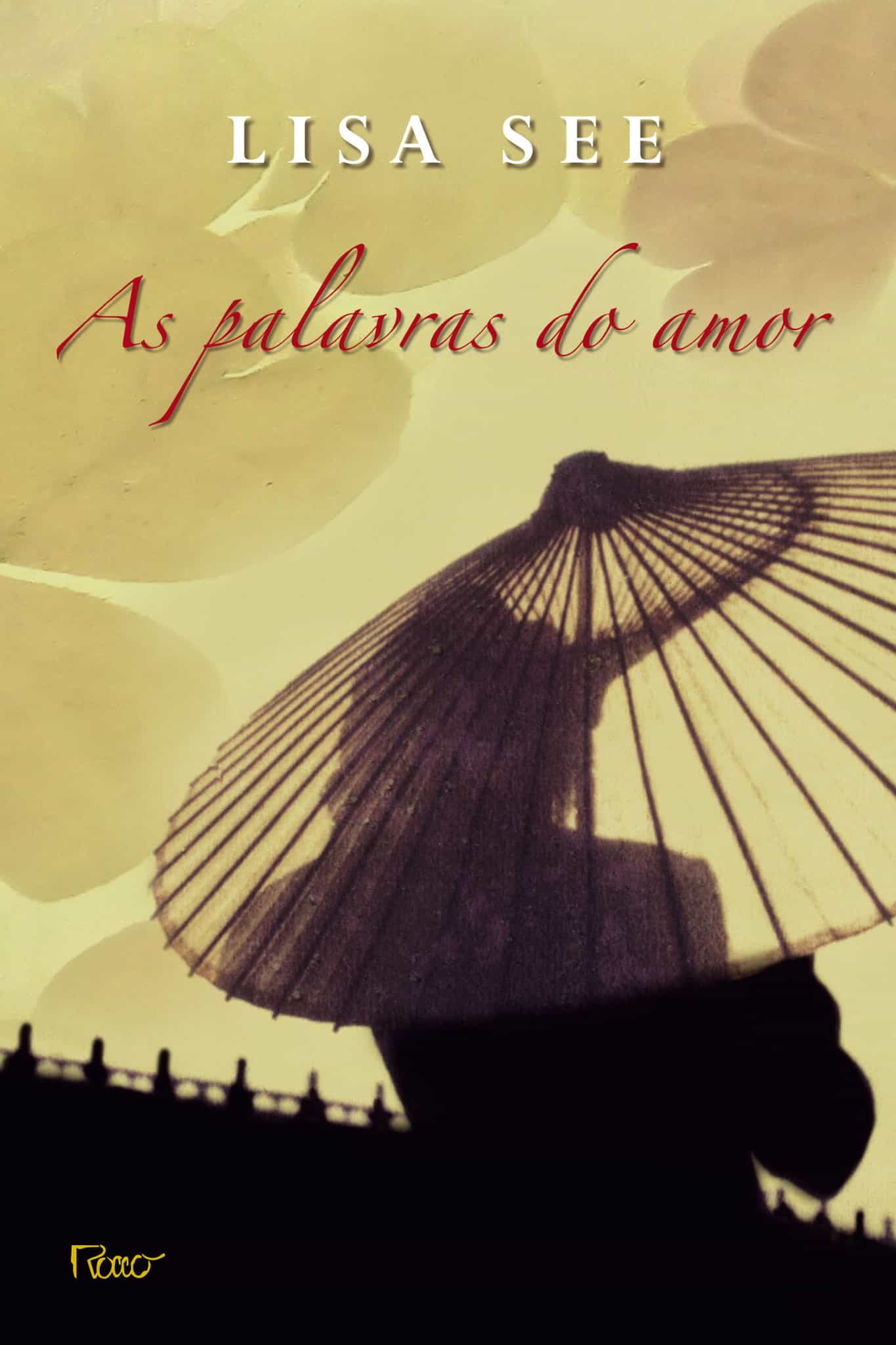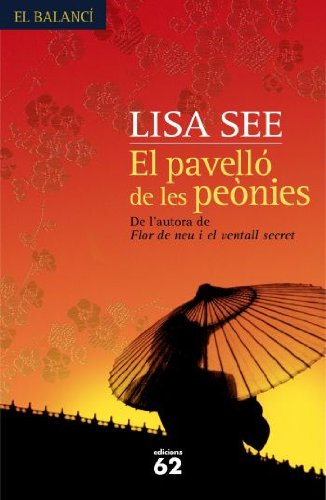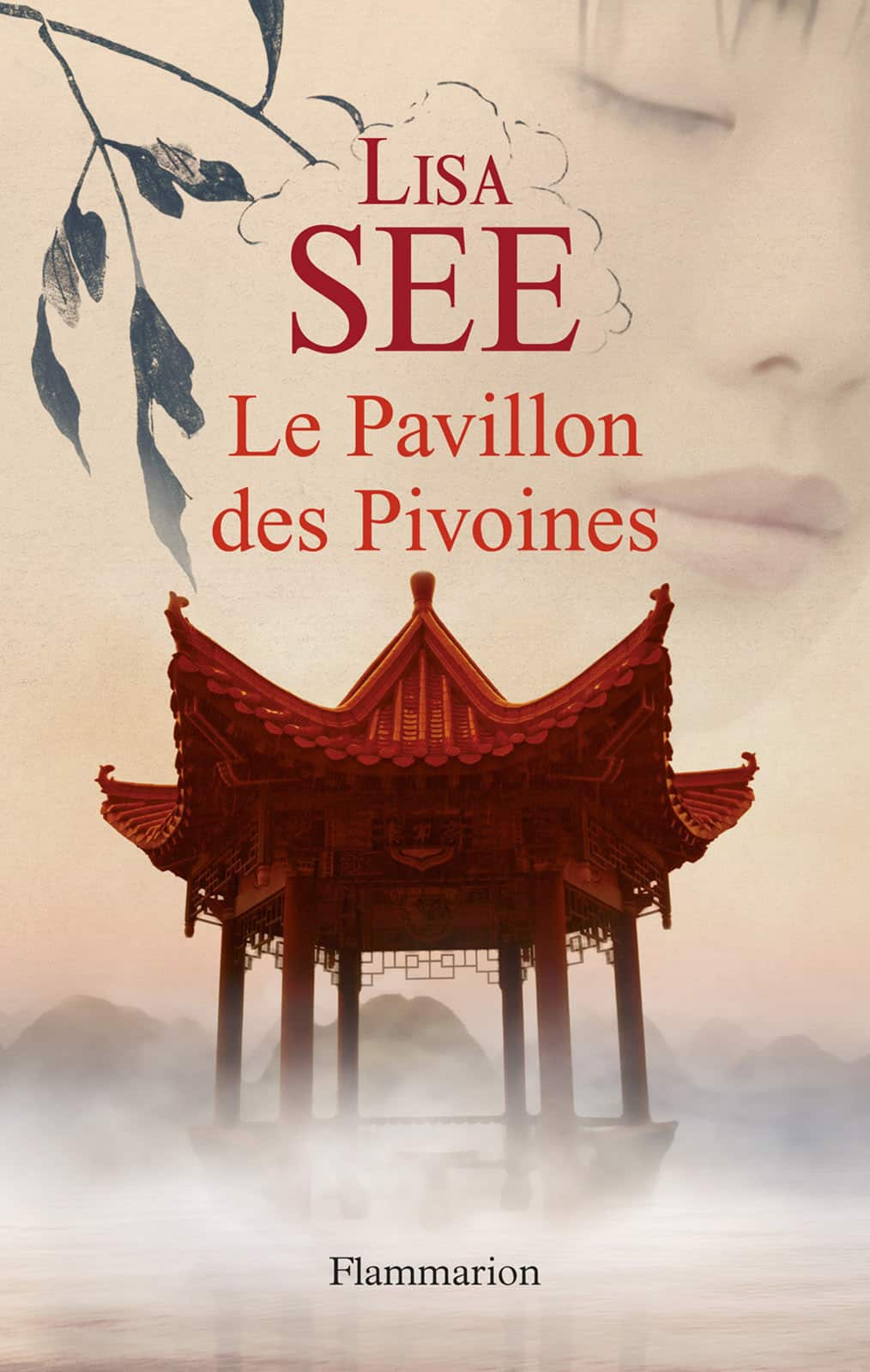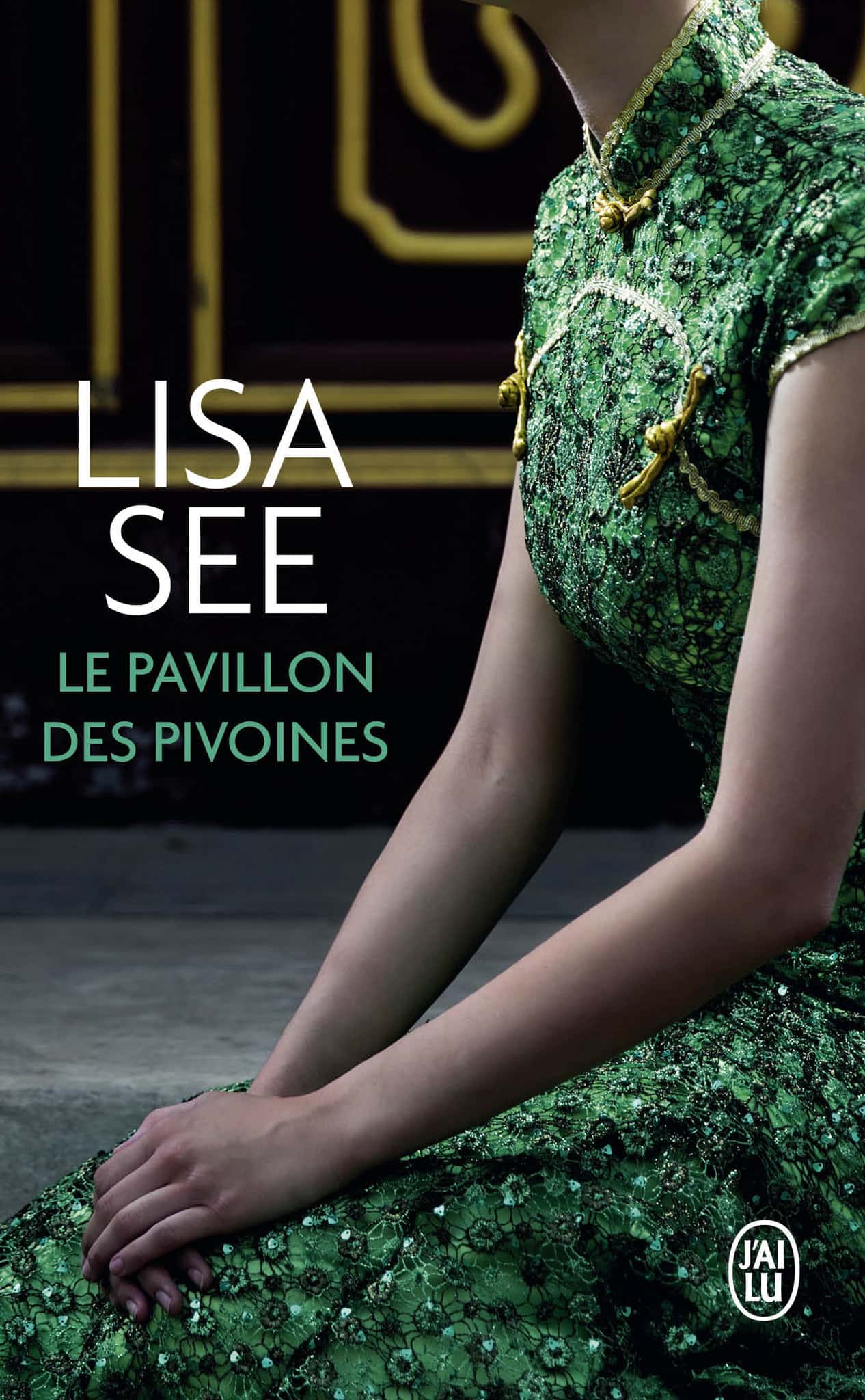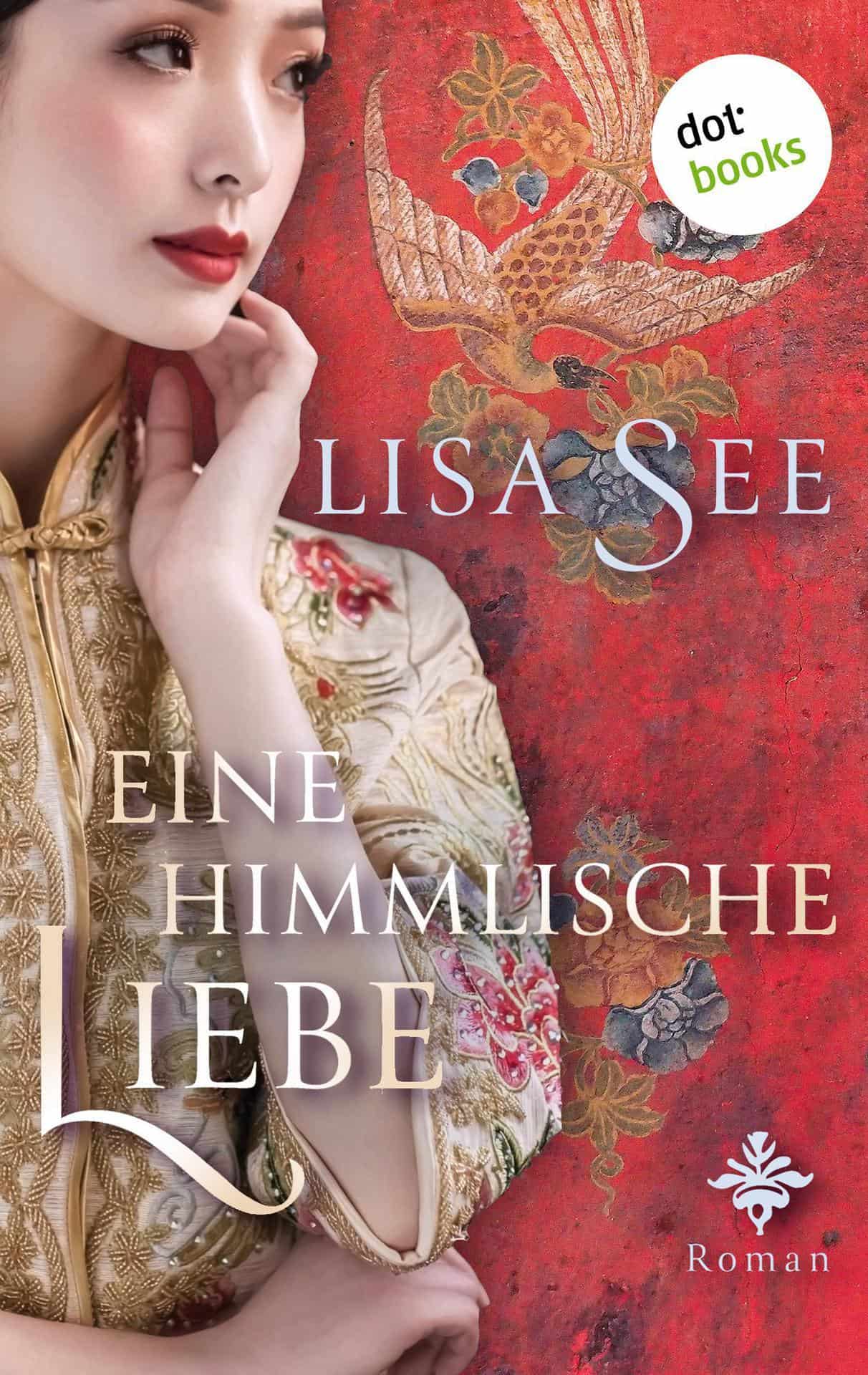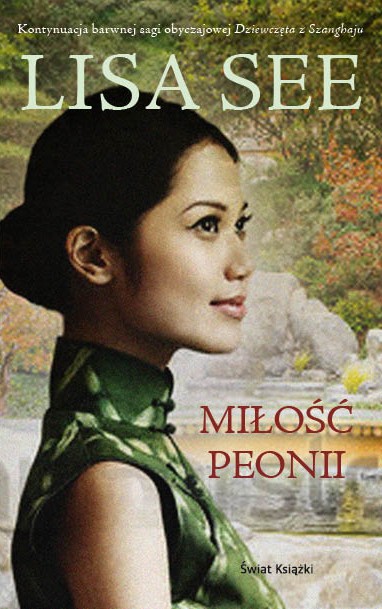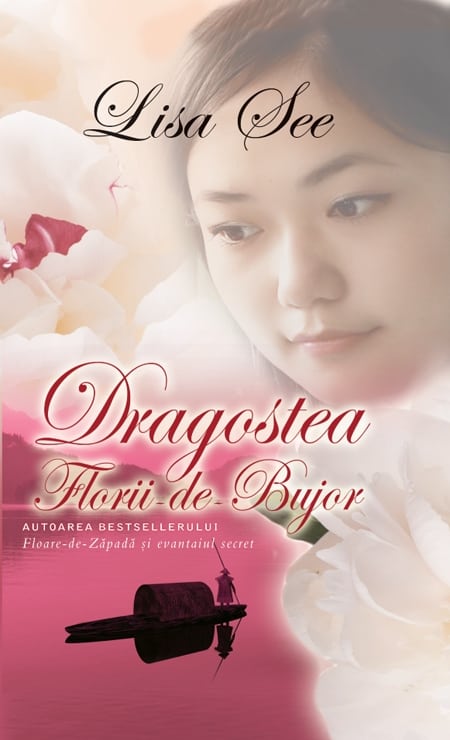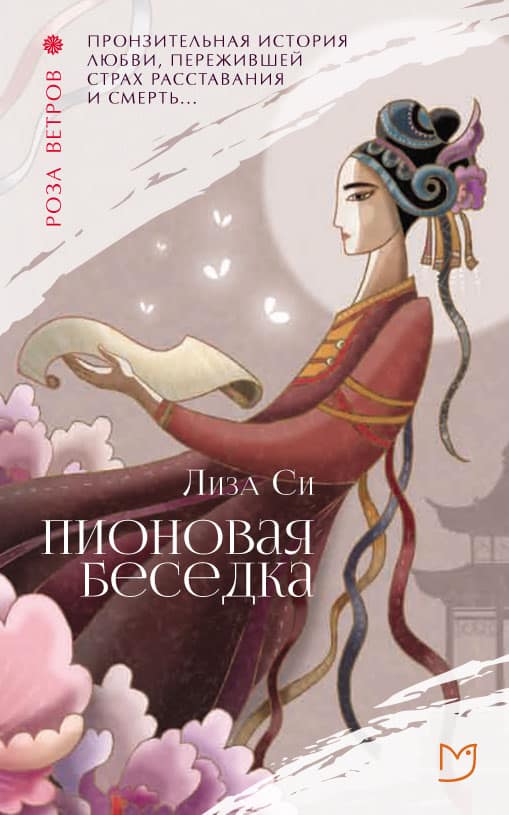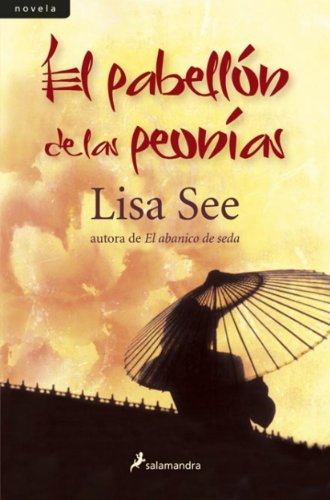Historical Fiction
Peony in Love
A Novel
“I finally understand what the poets have written. In spring, moved to passion; in autumn only regret.”
For young Peony, betrothed to a suitor she has never met, these lyrics from The Peony Pavilion mirror her own longings. In the garden of the Chen Family Villa, amid the scent of ginger, green tea, and jasmine, a small theatrical troupe is performing scenes from this epic opera, a live spectacle few females have ever seen. Like the heroine in the drama, Peony is the cloistered daughter of a wealthy family, trapped like a good-luck cricket in a bamboo-and-lacquer cage. Though raised to be obedient, Peony has dreams of her own.
Peony’s mother is against her daughter’s attending the production: “Unmarried girls should not be seen in public.” But Peony’s father assures his wife that proprieties will be maintained, and that the women will watch the opera from behind a screen. Yet through its cracks, Peony catches sight of an elegant, handsome man with hair as black as a cave–and is immediately overcome with emotion.
So begins Peony’s unforgettable journey of love and destiny, desire and sorrow–as Lisa See’s haunting new novel, based on actual historical events, takes readers back to seventeenth-century China, after the Manchus seize power and the Ming dynasty is crushed.
Steeped in traditions and ritual, this story brings to life another time and place–even the intricate realm of the afterworld, with its protocols, pathways, and stages of existence, a vividly imagined place where one’s soul is divided into three, ancestors offer guidance, misdeeds are punished, and hungry ghosts wander the earth. Immersed in the richness and magic of the Chinese vision of the afterlife, transcending even death, Peony in Love explores, beautifully, the many manifestations of love. Ultimately, Lisa See’s new novel addresses universal themes: the bonds of friendship, the power of words, and the age-old desire of women to be heard.
Buy the Book
Paperback
HARDCOVER
EBOOK
AUDIOBOOK
Praise & Reviews
“Engrossing…[a] thought-provoking meditation on what it means to be human.”
—People (Critic’s Choice)
“There are grand and stately themes here—the transcendence of love, the silenced voices of women, the subversive power of art… Peony in Love is a transporting read, to lost worlds earthly and otherwise.”
—The Chicago Tribune
“A quietly beautiful tale that sneaks into the reader’s heart… Not since Susie Salmon of Alice Sebold’s The Lovely Bones has a ghostly narrator been as believable and empathetic.”
—San Antonio Express-News
“See is gifted with a lucid, graceful style and a solid command of her many motifs.”
—
“Shakespearean in its themes and emotional depths.”
—St. Paul Pioneer Press
“A beautiful book about love that reads like an edge-of-your seat thriller you never want to put down or see end….The end of the book fairly soars and had me on the verge of tears. Had I not been in public upon reading the last page, I would have fallen….This is a book to be read and reread, savored and relived, pored over and relished.”
—The Book Reporter
“See is a master storyteller, calling on her knowledge of history, myth, and current international events to craft intricate narratives that are at once edifying and evocative. In Peony in Love, she leads us on a literary adventure into the past that will have relevance to today’s readers who value drama, accuracy, and the lure of the written word.”
Excerpt
Riding the Wind
Two days before my sixteenth birthday, I woke up so early that my maid was still asleep on the floor at the foot of my bed. I should have scolded Willow, but I didn’t because I wanted a few moments alone to savor my excitement. Beginning tonight, I would attend a production of The Peony Pavilion mounted in our garden. I loved this opera and had collected eleven out of the thirteen printed versions available. I liked to lie in bed and read of the maiden Liniang and her dream lover, their adventures, and their ultimate triumph. But for three nights, culminating on Double Seven—the seventh day of the seventh month, the day of the lovers’ festival, and my birthday—I would actually see the opera, which was normally forbidden to girls and women. My father had invited other families for the festivities. We’d have contests and banquets. It was going to be amazing.
Willow sat up and rubbed her eyes. When she saw me staring at her, she scrambled to her feet and offered good wishes. I felt another flutter of anticipation, so I was particular when Willow bathed me, helped me into a gown of lavender silk, and brushed my hair. I wanted to look perfect; I wanted to act perfectly.
A girl on the edge of sixteen knows how pretty she is, and as I looked in the mirror I burned with the knowledge. My hair was black and silky. When Willow brushed it, I felt the strokes from the top of my head all the way down my back. My eyes were shaped like bamboo leaves; my brows were like gentle brushstrokes limned by a calligrapher. My cheeks glowed the pale pink of a peony petal. My father and mother liked to comment on how appropriate this was, because my name was Peony. I tried, as only a young girl can, to live up to the delicateness of my name. My lips were full and soft. My waist was small and my breasts were ready for a husband’s touch. I wouldn’t say I was vain. I was just a typical fifteen-year-old girl. I was secure in my beauty but had enough wisdom to know it was only fleeting.
My parents adored me and made sure I was educated—highly educated. I lived a rarefied and precious existence, in which I arranged flowers, looked pretty, and sang for my parents’ entertainment. I was so privileged that even my maid had bound feet. As a small girl, I believed that all the gatherings we held and all the treats we ate during Double Seven were a celebration for me. No one corrected my mistake, because I was loved and very, very spoiled. I took a breath and let it out slowly—happy. This would be my last birthday at home before I married out, and I was going to enjoy every minute.
I left my room in the Unmarried Girls’ Hall and headed in the direction of our ancestral hall to make offerings to my grandmother. I’d spent so much time getting ready that I made a quick obeisance. I didn’t want to be late for breakfast. My feet couldn’t take me as fast as I wanted to go, but when I saw my parents sitting together in a pavilion overlooking the garden, I slowed. If Mama was late, I could be late too.
“Unmarried girls should not be seen in public,” I heard my mother say. “I’m even concerned for my sisters-in-law. You know I don’t encourage private excursions. Now to bring outsiders in for this performance.…”
She let her voice trail off. I should have hurried on, but the opera meant so much to me that I stayed, lingering out of sight behind the twisted trunks of a wisteria vine.
“There is no public here,” Baba said. “This will not be some open affair where women disgrace themselves by sitting among men. You will be hidden behind screens.”
“But outside men will be within our walls. They may see our stockings and shoes beneath the screen. They may smell our hair and powder. And of all the operas, you have chosen one about a love affair that no unmarried girl should hear!”
My mother was old-fashioned in her beliefs and her behavior. In the social disorder that followed the Cataclysm, when the Ming dynasty fell and the Manchu invaders took power, many elite women enjoyed leaving their villas to travel the waterways in pleasure boats, write about what they saw, and publish their observations. Mama was completely against things like that. She was a loyalist—still dedicated to the overthrown Ming emperor—but she was excessively traditional in other ways. When many women in the Yangzi delta were reinterpreting the Four Virtues—virtue, demeanor, speech, and work—my mother constantly chided me to remember their original meaning and intent. “Hold your tongue at all times,” she liked to say. “But if you must speak, wait until there is a good moment. Do not offend anyone.”
Two days before my sixteenth birthday, I woke up so early that my maid was still asleep on the floor at the foot of my bed. I should have scolded Willow, but I didn’t because I wanted a few moments alone to savor my excitement. Beginning tonight, I would attend a production of The Peony Pavilion mounted in our garden. I loved this opera and had collected eleven out of the thirteen printed versions available. I liked to lie in bed and read of the maiden Liniang and her dream lover, their adventures, and their ultimate triumph. But for three nights, culminating on Double Seven—the seventh day of the seventh month, the day of the lovers’ festival, and my birthday—I would actually see the opera, which was normally forbidden to girls and women. My father had invited other families for the festivities. We’d have contests and banquets. It was going to be amazing.
Willow sat up and rubbed her eyes. When she saw me staring at her, she scrambled to her feet and offered good wishes. I felt another flutter of anticipation, so I was particular when Willow bathed me, helped me into a gown of lavender silk, and brushed my hair. I wanted to look perfect; I wanted to act perfectly.
A girl on the edge of sixteen knows how pretty she is, and as I looked in the mirror I burned with the knowledge. My hair was black and silky. When Willow brushed it, I felt the strokes from the top of my head all the way down my back. My eyes were shaped like bamboo leaves; my brows were like gentle brushstrokes limned by a calligrapher. My cheeks glowed the pale pink of a peony petal. My father and mother liked to comment on how appropriate this was, because my name was Peony. I tried, as only a young girl can, to live up to the delicateness of my name. My lips were full and soft. My waist was small and my breasts were ready for a husband’s touch. I wouldn’t say I was vain. I was just a typical fifteen-year-old girl. I was secure in my beauty but had enough wisdom to know it was only fleeting.
My parents adored me and made sure I was educated—highly educated. I lived a rarefied and precious existence, in which I arranged flowers, looked pretty, and sang for my parents’ entertainment. I was so privileged that even my maid had bound feet. As a small girl, I believed that all the gatherings we held and all the treats we ate during Double Seven were a celebration for me. No one corrected my mistake, because I was loved and very, very spoiled. I took a breath and let it out slowly—happy. This would be my last birthday at home before I married out, and I was going to enjoy every minute.
I left my room in the Unmarried Girls’ Hall and headed in the direction of our ancestral hall to make offerings to my grandmother. I’d spent so much time getting ready that I made a quick obeisance. I didn’t want to be late for breakfast. My feet couldn’t take me as fast as I wanted to go, but when I saw my parents sitting together in a pavilion overlooking the garden, I slowed. If Mama was late, I could be late too.
“Unmarried girls should not be seen in public,” I heard my mother say. “I’m even concerned for my sisters-in-law. You know I don’t encourage private excursions. Now to bring outsiders in for this performance.…”
She let her voice trail off. I should have hurried on, but the opera meant so much to me that I stayed, lingering out of sight behind the twisted trunks of a wisteria vine.
“There is no public here,” Baba said. “This will not be some open affair where women disgrace themselves by sitting among men. You will be hidden behind screens.”
“But outside men will be within our walls. They may see our stockings and shoes beneath the screen. They may smell our hair and powder. And of all the operas, you have chosen one about a love affair that no unmarried girl should hear!”
My mother was old-fashioned in her beliefs and her behavior. In the social disorder that followed the Cataclysm, when the Ming dynasty fell and the Manchu invaders took power, many elite women enjoyed leaving their villas to travel the waterways in pleasure boats, write about what they saw, and publish their observations. Mama was completely against things like that. She was a loyalist—still dedicated to the overthrown Ming emperor—but she was excessively traditional in other ways. When many women in the Yangzi delta were reinterpreting the Four Virtues—virtue, demeanor, speech, and work—my mother constantly chided me to remember their original meaning and intent. “Hold your tongue at all times,” she liked to say. “But if you must speak, wait until there is a good moment. Do not offend anyone.
“Until the gods and goddesses grew weary,” Ze answered again, ignoring my mother’s obvious wishes. “They missed the girl who spun cloud silk into cloth for their clothes and they wanted her back.”
My mother frowned. This Tan Ze had forgotten herself entirely. I guessed her to be about nine years old. I glanced at her feet, remembering that she’d walked in unassisted today. Her two-year footbinding was behind her. Maybe her enthusiasm had to do with being able to walk again. But her manners!
“Go on,” Ze said. “Tell us more!”
Mama winced and then continued as though yet another breach of the Four Virtues had not occurred. “The Queen of Heaven brought the Weaving Maid and the Cowherd back to the celestial skies, and then she took a hairpin and drew the Milky Way to separate them. In this way, the Weaving Maid would not be diverted from her work, and the Queen of Heaven would be beautifully robed. On Double Seven, the goddess allows all the magpies on earth to form a celestial bridge with their wings so the two lovers can meet. Three nights from now, if you girls are still awake between the hours of midnight and dawn and find yourselves sitting beneath a grape arbor under the quarter moon, you will hear the lovers weep at their parting.”
It was a romantic thought—and it coated us in warm feelings—but none of us would be alone under a grape arbor at that time of night, even if we were within the safety of this compound. And at least for me, it did little to still my quivering excitement about The Peony Pavilion. How much longer would I have to wait?
When it came time for dinner back in the Spring Pavilion, the women gathered in little groups—sisters with sisters, cousins with cousins, but Madame Tan and her daughter were strangers here. Ze plopped down beside me at the unmarried girls’ table as though she were soon to be married and not still a little girl. I knew it would make Mama happy if I gave my attention to our guest, but I was sorry I did.
“My father can buy me anything I want,” Ze crowed, telling me and everyone else who could hear that her family had more wealth than the Chen clan.
# # #
We had barely finished our meal when from outside came the sound of a drum and cymbals, calling us to the garden. I wanted to show my refinement and leave the room slowly, but I was first out the door. Lanterns flickered as I followed the corridor from the Spring Pavilion, along the edge of the central pond, to just past our Always-Pleasant Pavilion. I stepped through moon gates, which borrowed views of stands of bamboo, potted cymbidiums, and artfully trimmed branches on the other side. As the music grew louder, I forced myself to slow down. I needed to proceed cautiously, fully aware that men who were not family members stood within our walls tonight. If one of them should chance to see me, I would be blamed and a bad mark set against my character. But being careful and not rushing took more self-control than I thought possible. The opera would begin shortly, and I wanted to experience every second of it.
I reached the area that had been set aside for women and sat down on a cushion positioned near one of the screen’s folds so I could peek through the crack. I wouldn’t be able to see much of the opera, but it was more than I’d hoped for. The other women and girls came in behind me and took places on other cushions. I was so excited I didn’t even mind when Tan Ze sat beside me.
For weeks, my father—as director of the performance—had been tucked away in a side hall with the cast. He had hired a traveling all-male theatrical troupe of eight members, which had upset my mother terribly, because these were people of the lowest and basest class. He’d also coerced others from our household staff—including Willow and several other servants—into taking various roles.
“Your opera has 55 scenes and 403 arias!” Willow had said to me in awe one day, as if I didn’t already know that. It would have taken more than twenty hours to perform the whole opera, but no matter how many times I asked, she wouldn’t tell me which scenes Baba had cut. “Your father wants it to be a surprise,” Willow said, enjoying the opportunity to disobey me. As the rehearsals became more demanding, consternation had rippled throughout the household when an uncle had called for a pipe and found no one to fill it, or an aunt had asked for hot water for her bath and no one had brought it. Even I had been inconvenienced, since Willow was busy now, having been given the important role of Spring Fragrance, the main character’s servant.
The music began. The narrator stepped out and gave a quick synopsis of the play, emphasizing how longing had lasted through three incarnations before Liu Mengmei and Du Liniang realized their love. Then we met the young hero, an impoverished scholar who had to leave his ancestral home to take the imperial exams. His family name was Liu, which means willow. He recalled how he dreamed of a beautiful maiden standing under a plum tree. When he woke up, he took the given name Mengmei, Dream of Plum. The plum tree, with its lush foliage and ripening fruit, brought to mind the forces of nature, so this name was suggestive even to me of Mengmei’s passionate nature. I listened attentively, but my heart had always been with Liniang and I could hardly wait to see her.
She arrived onstage for the scene called Admonishing the Daughter. She wore a robe of golden silk with red embroidery. From her headdress rose fluffy balls of spun silk, beaded butterflies, and flowers that quivered when she moved.
“We treasure our daughter like a pearl,” Madame Du sang to her husband, but she chastised her daughter. “You don’t want to be ignorant, do you?”
And Prefect Du, Liniang’s father, added, “No virtuous and eligible young lady should fail to be educated. Take time from your embroidery and read the books on the shelves.”
But admonitions alone couldn’t change Liniang’s behavior, so soon enough she and Spring Fragrance were being tutored by a strict teacher. The lessons were tedious, full of the kind of memorization of rules that I knew only too well. “It is proper for a daughter at first cockcrow to wash her hands, to rinse her mouth, to dress her hair, to pin the same, and to pay respects to her mother and father.
I heard things like this every day, along with Don’t show your teeth when you smile, Walk steadily and slowly, Look pure and pretty, Be respectful to your aunties, and Use scissors to trim any frayed or loose threads on your gowns.
Poor Spring Fragrance couldn’t stand the lessons and begged to be dismissed so she could pee. The men on the other side of the screen chortled when Willow bent over at the waist, squirmed, and held in her pee with both hands. It embarrassed me to see her behaving so, but she was only doing what my father had instructed, which shocked me, because how could he know about such things?
In my discomfort, I let me eyes drift from the stage, and I saw men. Most of them had their backs to me, but some were angled so I could see their profiles. I was a maiden, but I looked. It was naughty, but I had lived fifteen years without having committed a single act that anyone in my family could call unfilial.
My eyes caught sight of a man as he turned his head to look at the gentleman sitting in the chair next to him. His cheekbones were high, his eyes wide and kind, and his hair black as a cave. He wore a long dark blue gown of simple design. His forehead was shaved in deference to the Manchu emperor, and his long queue draped languidly over a shoulder. He brought his hand up to his mouth to make an aside, and I imagined in that simple gesture so much: gentleness, refinement, and a love of poetry. He smiled, revealing perfect white teeth and eyes that shone with merriment. His elegance and somnolence reminded me of a cat: long, slim, perfectly groomed, knowledgeable, and very contained. He was man-beautiful. When he turned his face back to the stage to watch the opera, I realized I’d been holding my breath. I let it out slowly and tried to concentrate as Spring Fragrance returned—relieved—with news of a garden she’d found.
When I read this part of the story, I felt great sympathy for Liniang, who was so cloistered she didn’t even know her family owned a garden. She had spent her entire life indoors. Now Spring Fragrance tempted her mistress to go outside to see the flowers, willows, and pavilions. Liniang was curious, but she artfully hid her interest from her maid.
The quiet and subtlety was broken by a great fanfare announcing the Speed the Plough scene. Prefect Du arrived in the countryside to exhort the farmers, herders, mulberry girls, and tea pickers to work hard in the coming season. Acrobats tumbled, clowns drank from flasks of wine, men in gaily decorated costumes tottered about the garden on stilts, and our maids and other servants performed country harvest songs and dances. It was such a li scene, filled with what I imagined the outside world of men to be: wild gestures, exaggerated facial expressions, and the dissonance of gongs, clackers, and drums. I closed my eyes against the cacophony and tried to draw more deeply into myself to find my interior reading quiet. My heart calmed. When I opened my eyes, I again saw through the slit in the screen the man I’d spotted earlier. His eyes were closed. Could he be feeling what I was feeling?
Someone pulled my sleeve. I looked to my right and saw Tan Ze’s pinched little face staring at me intently. “Are you staring at that boy out there?” she whispered.
I blinked a few times and tried to regain my composure by taking a several shallow breaths.
“I was looking at him too,” she confided, acting much too bold for her years. “You must be betrothed already. But my father”—she brought her chin down while looking up at me with clever eyes—“has not yet arranged my marriage. He says that with so much turmoil still in the land, no one should agree to these things too early. You don’t know which family will go up and which will go down. My father says it’s terrible to marry a daughter to a mediocre man.”
Was there a way to make this girl close her mouth? I wondered, and not in a nice way.
Ze turned back to face the screen and squinted through the crack. “I will ask my father to make inquiries about that boy’s family.”
As though she would actually have a choice in her marriage! I don’t know how it could have happened so quickly, but I was jealous and angry that she would try to steal him for herself. Of course, there was no hope for the young man and me. As Ze said, I was already betrothed. But for these three nights of the opera I wanted to dream romantic thoughts and imagine that my life too might have a happy love-filled ending like Liniang.
I blocked Ze from my mind and let myself be transported back to the opera for The Interrupted Dream. At last Liniang ventured out into her—our—garden. Such a lovely moment when she sees it all for the first time. Liniang lamented that the beauty of the flowers was hidden in a place no one visited, but she also saw the garden as a version of herself: in full bloom but neglected. I understood how she felt. The emotions that stirred in her were stirred in me every time I read the lines.
Liniang returned to her room, changed into a robe embroidered with peony blossoms, and sat before a mirror, wondering at the fleeting nature of her beauty much as I had this morning. “Pity one whose beauty is a bright flower, when life endures no longer than a leaf on a tree,” she sang, expressing how disturbing spring’s splendor can be, and how temporary. “I finally understand what the poets have written. In spring, moved to passion; in autumn, only regret. Oh, will I ever see a man? How will love find me? Where can I reveal my true desires?”
Overcome by all she’d experienced, she fell asleep. In her dreams, she traveled to the Peony Pavilion, where the spirit of Liu Mengmei appeared, wearing a robe with a willow pattern and carrying a willow sprig. He touched Liniang gently with the leaves. They exchanged soft words, and he asked her to compose a poem about the willow. Then they danced together. Liniang was so delicate and touching in her movements that it was like watching a silkworm’s death—tender and subtle.
Mengmei led her into our garden’s rocky grotto. With the two of them gone from view, all I heard was Mengmei’s seductive voice. “Open the fastening at your neck, untie the sash around your waist, and cover your eyes with your sleeve. You may need to bite the fabric…”
Alone in my bed I had tried in vain to imagine what might be going on in the rockery of the Peony Pavilion. I still couldn’t see what was happening and had to rely on the appearance of the Flower Spirit to explain their actions. “Ah, how the male force surges and leaps…” But this didn’t help me either. As an unmarried girl, I’d been told about clouds and rain, but no one had yet explained what it really was.
At consummation, a shower of peony petals came floating over the top of the rockery. Liniang sang of the joys she and her scholar had found.
When Liniang woke from her dream, she realized she’d found true love. Spring Fragrance, on orders from Madame Du, instructed Liniang to eat. But how could she? Three meals a day held no promise, no love. Liniang sneaked away from her servant and went back to the garden to pursue her dream. She saw the ground carpeted in petals. Hawthorn branches caught her skirt, pulling at her, keeping her in the garden. Memories of her dream came back to her: “Against the withered rock he leaned my wilting body.” She remembered how he laid her down and how she spread the folds of her skirt as “a covering for earth for the fear of the eyes of Heaven,” until eventually she’d experienced her sweet melting.
She lingered under a plum tree thick with clusters of fruit. But this was no ordinary plum tree. It represented Liniang’s mysterious dream lover—vital and procreative. “I should count it a great good fortune to be buried here beside it when I die,” Liniang sang.
My mother had trained me never to show my feelings, but when I read The Peony Pavilion, I felt certain things: love, sadness, happiness. Now, watching the story played out before me, imagining what happened in our rockery between the scholar and Liniang, and seeing a young man not of my own family for the first time brought out too many emotions in me. I had to get away for a few moments; Liniang’s restlessness was my own.
I slowly rose and gingerly stepped between the cushions. I walked along one of our garden paths, Liniang’s words filling my heart with longing. I tried to rest my mind by letting my eyes find quiet in the greenery. There were no flowers in our main garden. Everything was green to create a feeling of tranquility like a cup of tea—the taste light but remaining a long time. I crossed the zigzag bridge that spanned one of our lesser lily ponds and stepped into the Riding-the-Wind Pavilion, which had been designed so that gentle breezes on a sultry summer evening would cool a hot face or burning heart. I sat down and tried to calm myself in the way the pavilion intended. I had so wanted to experience every second of the opera, but I’d been unprepared for how overwhelmed I would feel.
Arias and music wafted to me through the night, carrying with them Madame Du’s concern over her daughter’s listlessness. Madame Du didn’t recognize it yet, but her daughter was lovesick. I closed my eyes, took a deep breath, and let that knowledge seep into me.
Then I heard a disquieting echo of my breath near me. I opened my eyes and saw standing before me the young man I’d seen through the slit in the screen.
A tiny yip of surprise escaped from my lips before I could even begin to compose myself. I was alone with a man who was not a relative. Worse, he was a total stranger.
“I’m sorry.” He folded his hands together and bowed several times in apology.
My heart pounded—from fear, from excitement, from the sheer extraordinariness of the situation. This man had to be one of my father’s friends. I had to be gracious, yet maintain decorum. “I shouldn’t have left the performance,” I said hesitantly. “It’s my fault.”
“I shouldn’t have left either.” He took a step forward, and my body leaned away in automatic response. “But the love of those two…” He shook his head. “Imagine finding true love.”
“I’ve imagined it many times.”
I was sorry as soon as the words left my mouth. This was not the way to speak to a man, whether a stranger or a husband. I knew that, and yet the words had flown from my tongue. I put three fingers to my lips, hoping they would keep more thoughts from escaping.
“So have I,” he said. He took another step forward. “But Liniang and Mengmei find each other in the dream, and then they fall in love.”
“Perhaps you don’t know the opera,” I said. “They meet, true, but Liniang pursues Mengmei only after she becomes a ghost.”
“I know the story, but I disagree. The scholar must overcome his fear of her ghost—”
“A fear that arises only after she seduces him.”
How could that sentence have come out of my mouth?
“You must forgive me,” I said. “I’m just an ignorant girl, and I should get back to the performance.”
“No, wait. Please don’t go.”
I looked through the darkness back toward the stage. I’d waited my entire life to see this opera. I could hear Liniang sing, “In my thin gown I tremble, wrapped against the morning chill only by regrets to see red tears of petals shake from the bough.” In her lovesickness, she’d become so thin and frail—haggard, really—that she decided to paint her self-portrait on silk. If she left the world, she would be remembered as she’d been in her dream, ripe with beauty and unfulfilled desire. This act—as it was, even for a living girl—was a tangible symptom of Liniang’s lovesickness, since it acknowledged and anticipated her death. With the fine lines of her brush, she painted a plum sprig in the figure’s hand to recall her dream lover, hoping that if he ever chanced upon the portrait he would recognize her. Finally, she added a poem expressing her wish to marry someone named Liu.
How could I be tempted to stay away from the opera so easily? And by a man? If I had been thinking at all, I would have realized right then why some people believed The Peony Pavilion lured young women into behaving improperly.
He must have sensed my indecision—how could he not?—for he said, “I won’t speak of this to anyone so please stay. I’ve never had a chance to hear what a woman thinks of the opera.”
A woman? The situation was getting worse. I stepped around him, making sure that no part of my clothes brushed against him. As I walked past, he spoke again.
“The author meant to stir female feelings of qing—of love and emotion—in us. I feel this story, but I don’t know if what I experience is true.”
We were just inches apart. I turned and looked up into his face. His features were even more refined than I’d thought. In the dim light of the soon-to-be quarter moon, I saw the high planes of his cheekbones, the gentleness in his eyes, and the fullness of his mouth.
“I.…” My voice closed in on itself as he gazed down at me. I cleared my throat and began again. “How could a girl—cloistered and from an elite family—”
“A girl like you.”
“—choose her own husband? This is not possible for me, and it would have been impossible for her too.”
“Do you think you understand Liniang better than her creator?”
“I’m a girl. I’m the same age. I believe in filial duty,” I said, “and I will follow the course my father has set for me, but all girls have dreams, even if our destinies are set.”
“So you have the same kinds of dreams as Liniang?” he asked.
“I’m not a pleasure girl on one of the painted boats on the lake, if that’s what you’re asking!”
Suddenly I burned with embarrassment. I had said too much. I stared at the ground. My bound-foot shoes looked tiny and delicate next to his embroidered slippers. I felt his eyes on me and longed to look up, but I couldn’t. I wouldn’t. I tipped my head and, without another word, left the pavilion.
He called softly after me. “Meet me tomorrow?” A question, followed a heartbeat later by a stronger statement: “Meet me tomorrow night. Meet me here.”
I didn’t answer. I didn’t look back. Instead I walked straight to our main garden and once again threaded my way through the seated women to the pillow positioned in front of the screen’s fold. I glanced around, hoping no one had noticed my absence. I sat down and forced myself to look through the crack out to the performance, but I found it hard to pay attention. When I saw the young man return to his seat, I closed my eyes. I would not allow myself to look at him. Sitting there, my eyes shut tight, the music and the words penetrated me.
Liniang was dying from her lovesickness. A diviner was brought in to prescribe charms, to no avail. By the Autumn Moon Festival, Liniang was very weak, feeling a floating numbness. Her bones dreaded the autumn chill. Cold rain battered the windows and melancholy geese crossed the sky. When her mother came to see her, Liniang apologized that she would not serve her parents until the end of their days. She tried to kowtow in respect and then collapsed. Knowing she was going to die, she begged her family to bury her in the garden under the plum tree. Secretly she asked Spring Fragrance to hide her portrait in the garden’s grotto where she and her dream lover had consummated their love.
I thought of the young man I’d met. He hadn’t touched me, but sitting there on the women’s side of the screen I could admit that I’d wanted him to. Out onstage, Liniang died. Mourners gathered to sing of their grief, while her parents keened with unhappiness. And then, in a sudden twist, a messenger arrived with a letter from the emperor. I didn’t like this part of the story very much. Prefect Du was promoted. A huge celebration began, which now, as I saw it, was a great spectacle and a wonderful way to end the evening. But how could the Dus forget their grief so easily if they loved their daughter as much as they said they did? Her father even forgot to dot her ancestor tablet, which would cause her much trouble in the afterworld.
Later, lying in bed, I found myself filled with a longing so deep I could barely breathe. another girl.
Discussion Guide
Readers Guide Questions
1. One thousand years ago, the poet Han Yun wrote, “All things not at peace will cry out.” What do you think he meant by that? And in what ways does this inspire Peony and the other women writers in the novel?
2. What are the different kinds of love that Peony experiences? How does her love for Ren (as well as for her mother, father, grandmother, Yi, and even Willow) change through the years? Have you had similar experiences in your life?
3. Early in the novel, Peony reads the following phrase, printed on a couplet in her father’s library: “Do not care about fame. Be modest. In this way you will be found by others to be special.” In what ways does Peony – in life and in her afterlife – reflect (or not reflect) the virtues extolled by this phrase?
4. Anticipating her first meeting with Ren in the Moon-Viewing Pavilion, Peony states: “Monthly bleeding doesn’t turn a girl into a woman, nor does betrothal or new skills. Love had turned me into a woman.” Is Peony’s statement true?
5. Peony is filled with doubt after meeting Ren – doubt about their relationship, doubt about ever finding love, and doubt about being a good mother. What is the source of this doubt and how does it grow within Peony?
6. In the nights of watching “The Peony Pavilion,” Peony has many visions of married life, and many visions of “her poet.” Why isn’t she able to make the connection that both men are one and the same? What signs did she overlook and why?
7. Peony thinks she’s being dressed and taken to her wedding. In fact, she’s taken to the courtyard to die. Peony is certainly surprised by this turn of events. Were you? How does this moment effect Peony’s future actions and her feelings about her family? How do you feel about this practice?
8. Many men have told Lisa that they don’t like the idea of the Chinese afterworld, where your relatives are still your relatives and your place in life remains the same as it was in life. Many women, on the other hand, have told her that they find the idea of the Chinese afterworld comforting. They want to be united with their families in the afterworld and still be able to interfere in the living world. What are the differences and similarities between the Chinese afterworld and western concepts of heaven and hell? Which seem better? Which would you prefer – for yourself and for your loved ones?
9. We see a difference in Peony’s actions after Ze marries Ren and again after Ze dies. Do you see redemption here for Peony?
10. In what ways is mother love explored? How does it change from a mother’s or daughter’s perspective? What does Peony learn about mother love and in what ways does she experience it herself? What aspects of mother love still hold true for mothers and daughters today?
11. How does what happened during the Cataclysm change depending on who’s telling the story?
12. Peony in Love shows the strength of women and women’s companionship, but in what ways does it also show the dark shadow side of women whether in the women’s chambers, between a mother and daughter, between wives, or even between friends?
13. Peony in Love is very much a tale of secrets and the power secrets can exercise over others. Who wields the power of secrets in this story? Who succumbs to that power? Which characters experience the greatest shifts in powerful moments and abject powerlessness?
14. Often what we hate most about ourselves – our weight, our tendency toward selfishness, our vanity, etc. – is what we are most critical of in others. Trace the progress of Peony’s relationship with Tan Ze – through life together in the Chen Family Villa and in the afterlife. In what ways are they alike, and how are they dissimilar? Why do they need each other, and how do they serve one another? Do you have similar symbiotic relationships in your life, and in what ways would you expect those relationships to change in death?
15. How do Peony’s experiences as a living girl and then as a hungry ghost parallel Liniang’s experiences in “The Peony Pavilion”?
Videos
Frequently Asked Questions
(FAQ)
I first heard about the lovesick maidens when I was researching a piece for Vogue on the 2001 Lincoln Center production of the Chinese opera “The Peony Pavilion.” Back in the mid-17th century, women and girls in China weren’t allowed to see the opera, but they could read it. When they read it, young girls caught cases of lovesickness, wasted away, and died, just like the main character in the opera. As they were dying, they wrote poems and stories, which were then published after their deaths. I came to find out that the lovesick maidens were part of a much larger phenomenon. In the mid-17th century in China, there were more women writers who were being published than altogether in the rest of the world at that time! I thought, How could there have been that many women writers and I didn’t know about them…and why don’t we all know? But I was still very interested in the lovesick maidens and the three wives, in particular. I loved that they wrote the first book of its kind to have been written and published by women anywhere in the world. I love even more that what they wrote is still so meaningful and powerful today. In Peony in Love, every time the three wives are writing in the margins of “The Peony Pavilion,” those are their actual words.
I thought about writing about the three wives for years. I even wanted to do it as an opera and talked to the director and composer of the “On Gold Mountain” opera to see if they’d be interested in working on it with me, but they were busy with other projects. I continued to think about how to tell the three wives’ story. I didn’t think there was enough for a non-fiction book. But when I thought about telling their story as fiction, I wasn’t interested in telling one wife’s story, followed by the second wife’s story, and then the third wife’s story. I wanted one strong voice to carry me and readers through. On the last day and on the very last page of writing Snow Flower and the Secret Fan, I figured out how to do it. On the last page, Lily, who’s been writing her story as an autobiography, says that she hopes her writings will be burned at her death so that the words will travel to the afterworld where they’ll introduce her to others who already reside there, keep her company in years to come, but most of all be an apology to Snow Flower. In that moment, I wondered, how would Snow Flower have told this story differently? I didn’t want to retell Snow Flower and the Secret Fan, but I did realize that I could tell the story of the three wives from the perspective of the first wife by letting her be in the Chinese afterworld. Obviously, if you’re writing from the perspective of the Chinese ghost world, it has to be fiction!
I don’t particularly believe in the Chinese version of the afterlife anymore than I believe in the western version of the afterlife. But I do love the idea that in the Chinese version you go to the afterworld—whether as an ancestor or as a ghost—with all the same needs, wants, and desires that we have in this life. People in the afterworld still need clothes, food, a place to live. These days they need to have I-Pods, flat-screen TVs, cars, and cell phones. These items are made out of paper and burned by relatives on earth so they will travel to the afterworld for ancestors to use. But these are just material objects, and I’m not that interested in those. What I love about the Chinese afterworld is that you also go there with all your emotions. I’ve been thinking a lot about this since I finished writing the book. Most of us have lost someone in our lives. We’re left with feelings of love, despair, anguish, grief, and sometimes anger and resentment. What if the person who dies is experiencing a kind of mirror image of that? We live by our emotions, so why should or would they disappear when we die? I think it’s rather intriguing to think that our emotions would continue. I also really like the Chinese idea that even after you die, you continue to learn and evolve.

